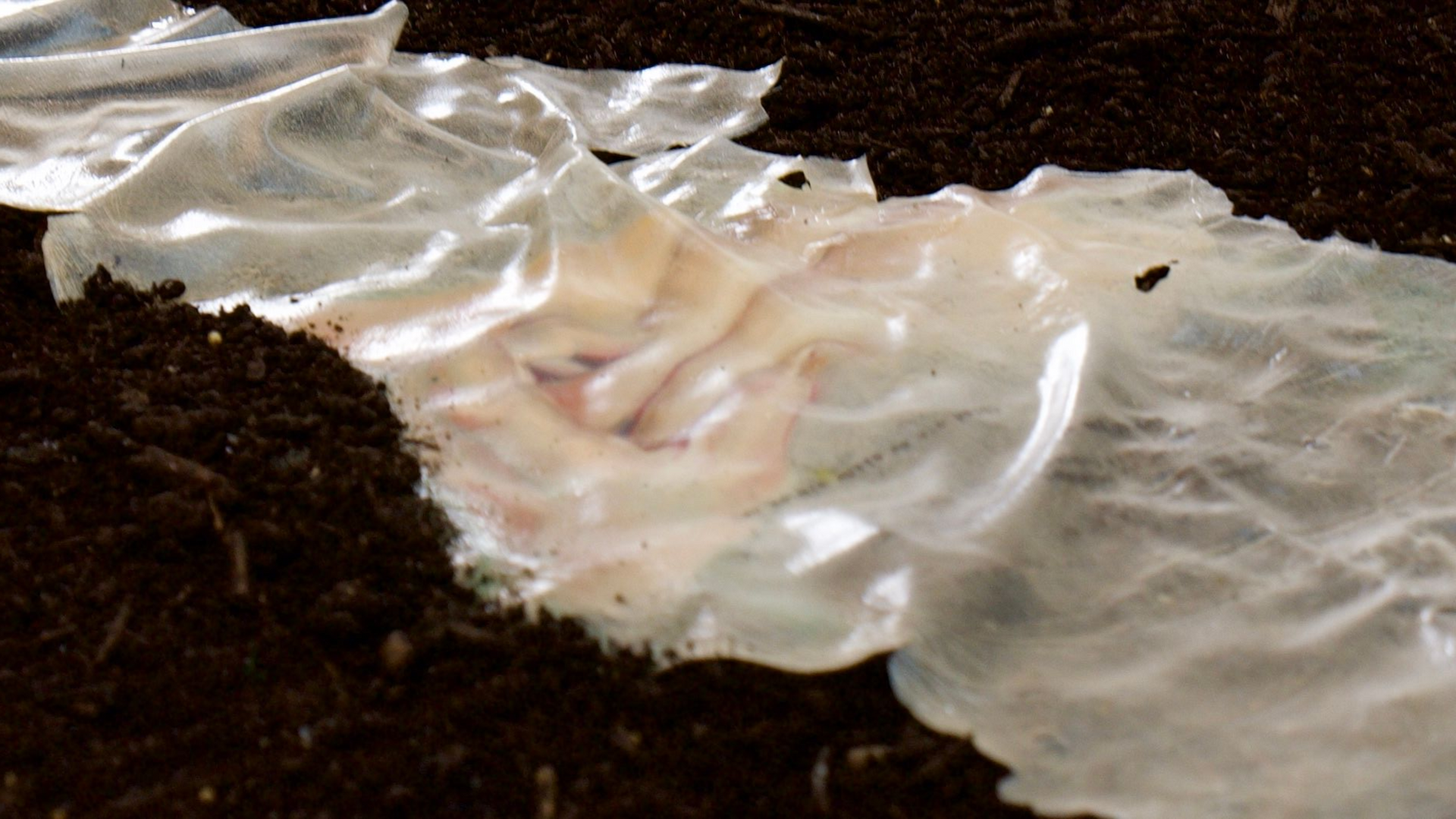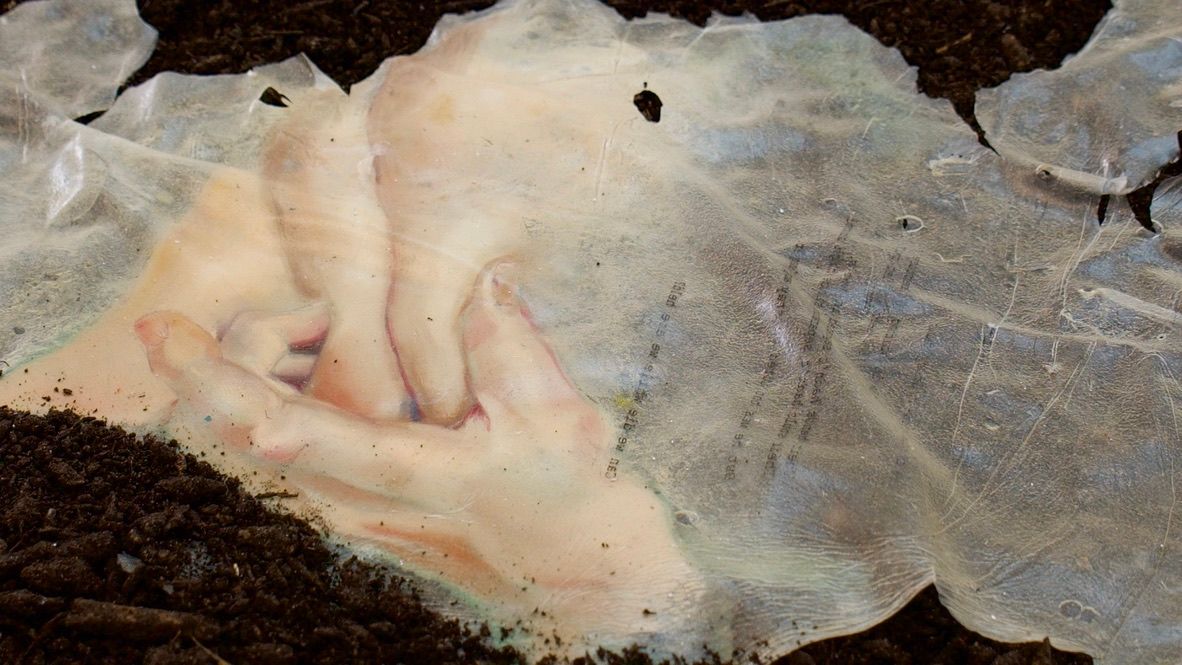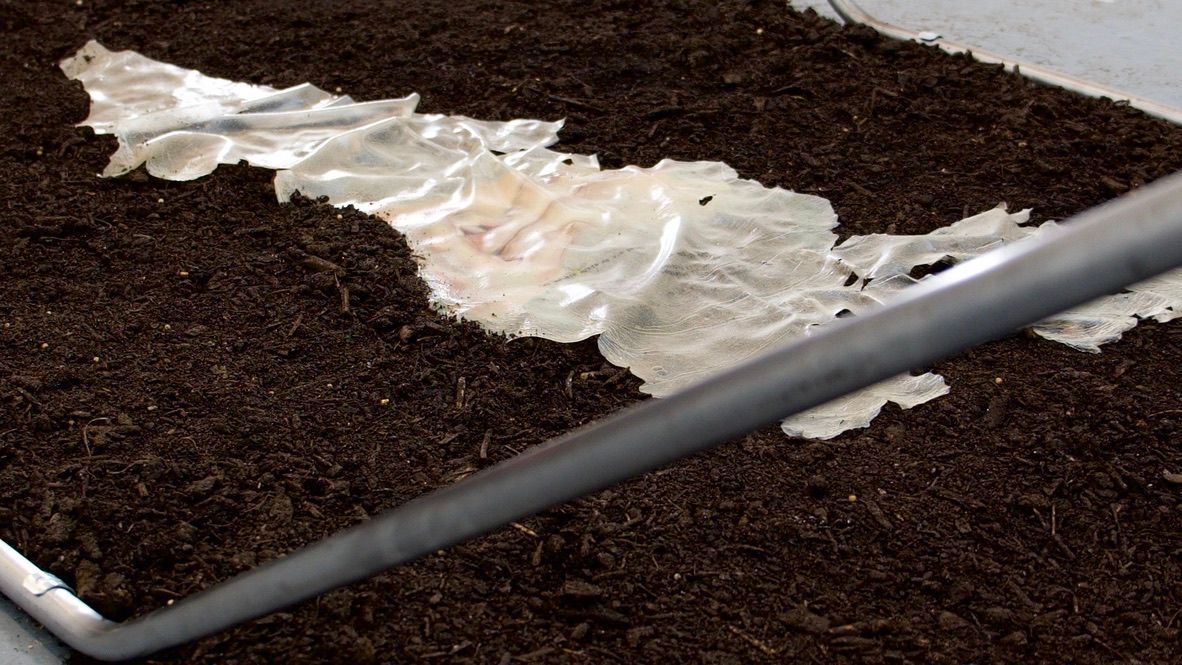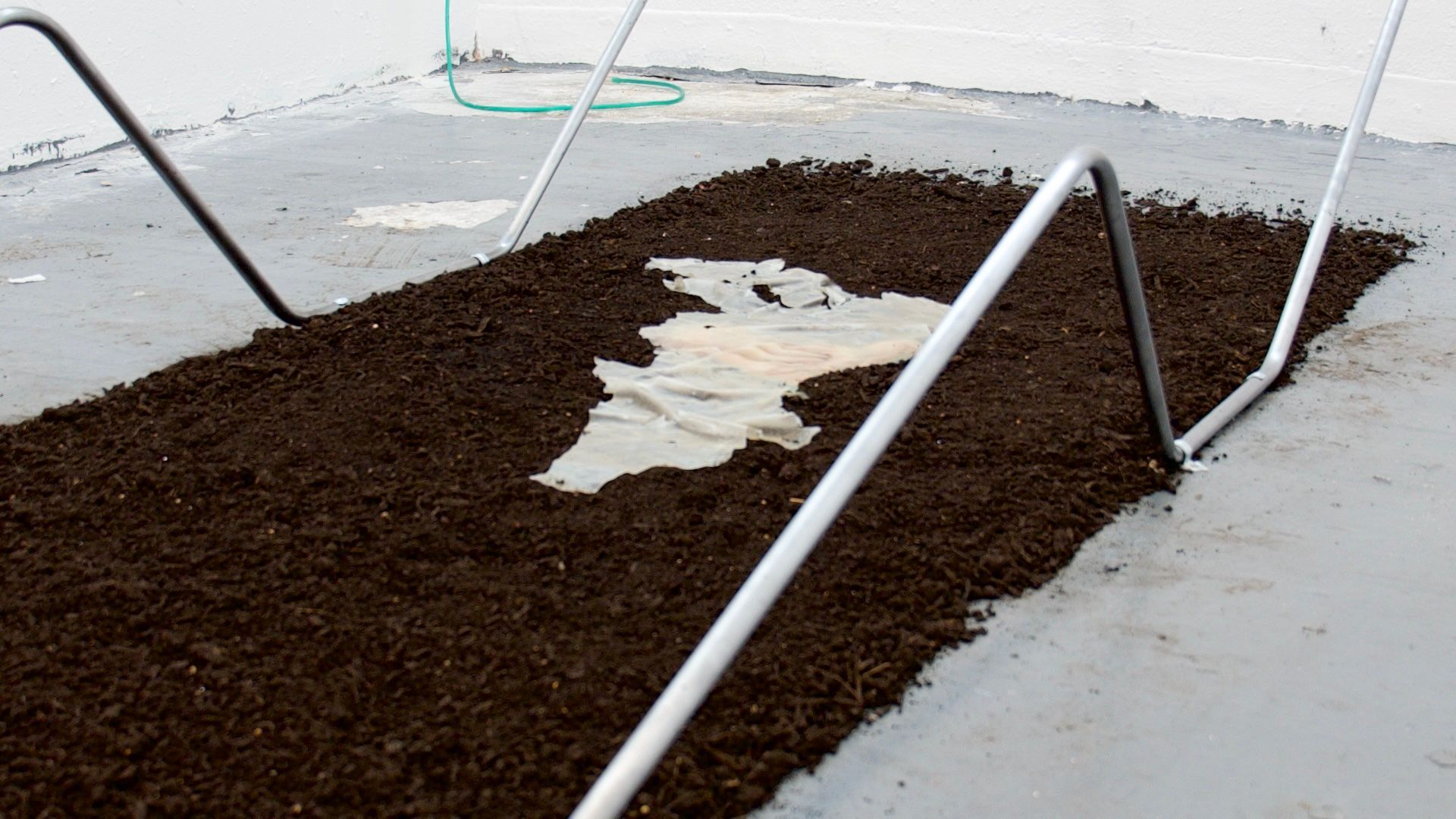Portfolio
Central Park Bioplastics, 2024
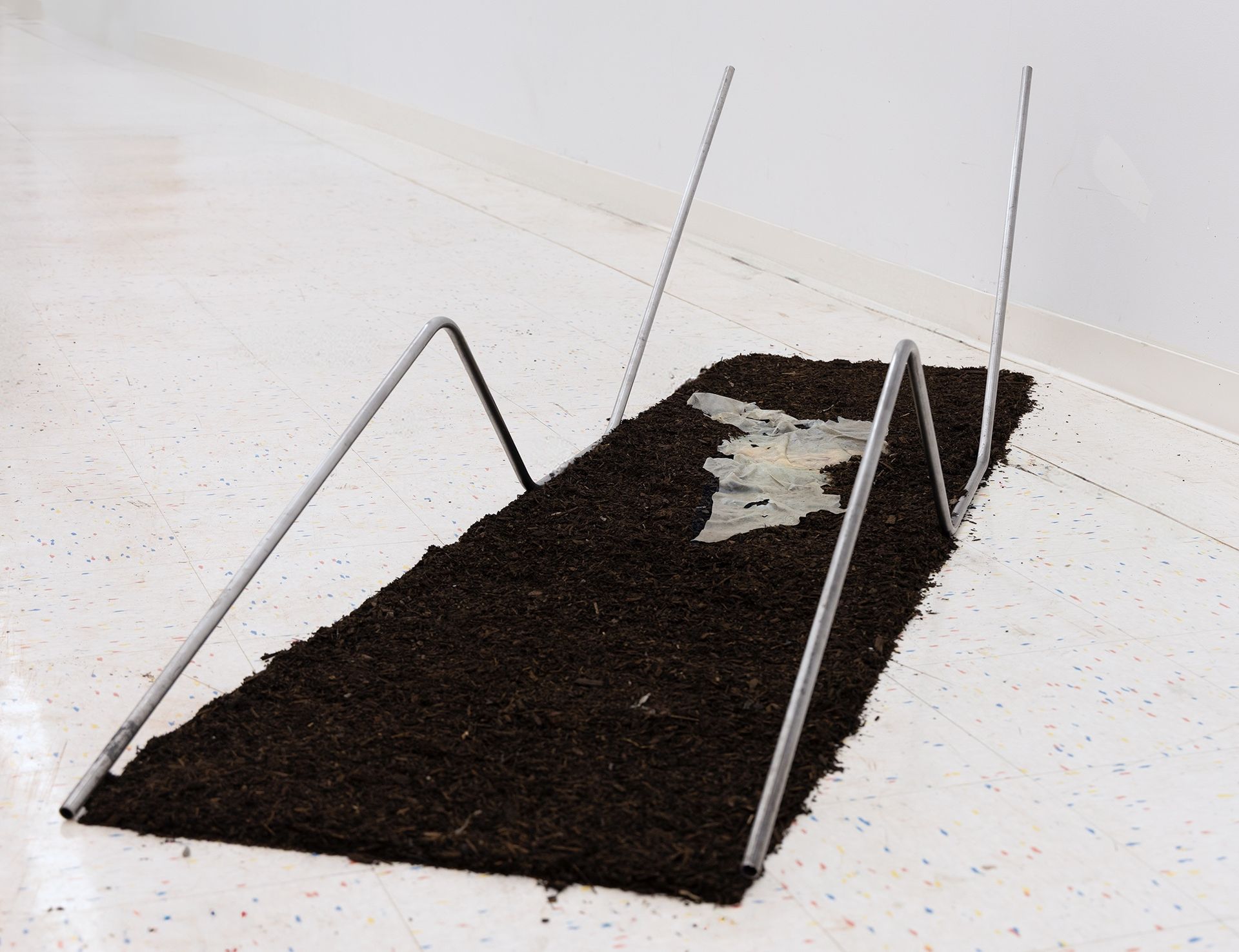
Compost Machines, 2024
Algae Harvested from Central Park, Vegetable Glycerine, Water, Oil Paint, Acetone, Ink, NYC Curbside Compost, Bone Meal, IV Extension, Medical Tape, Acrylic Tube, Cold Rolled Steel, Steam Bent Baltic Birch Plywood.
How Can i Be Without Border?
2024
Algae Harvested from Central Park, Vegetable Glycerine, Water, Oil Paint, Acetone, Ink, NYC Curbside Compost.
Composting Communications: How Can i Be Without Border?
The corpse (or cadaver: cadere, to fall), that which has irremediably
come a cropper, is cesspool, and death; it upsets even
more violently the one who confronts it as fragile and fallacious
chance. A wound with blood and pus, or the sickly, acrid smell
of sweat, of decay, does not signify death. In the presence of
signified death—a flat encephalograph, for instance—I would
understand, react, or accept. No, as in true theater, without
makeup or masks, refuse and corpses show me what I permanently
thrust aside in order to live. These body fluids, this
defilement, this shit are what life withstands, hardly and with
difficulty, on the part of death. There, I am at the border of
my condition as a living being. My body extricates itself, as
being alive, from that border. Such wastes drop so that I might
live, until, from loss to loss, nothing remains in me and my
entire body falls beyond the limit—cadere, cadaver.
- Julia Kristeva, Approaching Abjection[1]
"I am researching the permeability of boundaries—between life and death, self and other, human and more-than-human. Through concepts like Stacy Alaimo's trans-corporeality, Anne Carson's Eros, and Karen Barad's intra-action, I wrestle with the idea of touch, desire, and the impossibility/possibility of dissolving the boundaries between self and other (me and you). These reflections have culminated in a turn toward composting—not as disappearance but as a process of translation, regeneration, and connection. Ultimately, composting becomes both a metaphor and a practice, embodying the continual interplay of decay and renewal, the breaking of borders, and the profound intimacy of existing within a shared and cyclical world."
